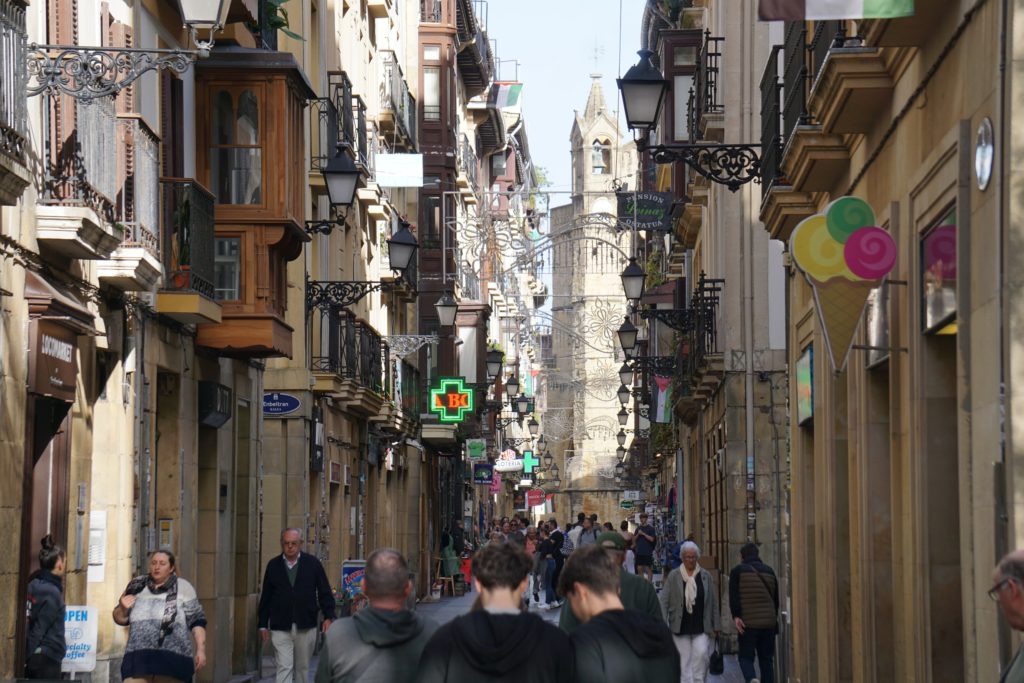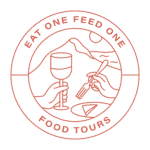Ever heard a language so unique that it has no known relatives? Welcome to the world of Euskera, the language of the Basque Country. It’s not just a language—it’s a cultural treasure, a mystery, and part of the identity of San Sebastian. And yes, it’s also the language behind some of your favourite pintxo names!
The Oldest Language in Europe: Did you know that Euskera is one of the oldest languages in Europe? Unlike Spanish or French, it’s a language with no known connection or root.
Linguists are still scratching their heads over its origins. It was here before the Romans, even before Latin influenced the rest of the continent.
“Zorioneku” is the oldest written word found in Euskera (meaning “fortunate” or “lucky”). It was discovered on a 3rd-century Roman tablet by an archeologist who also happens to make chocolate in Navarra!
Isn’t it incredible? A word from a language spoken thousands of years ago that still resonates today.
Euskera is very much alive. It’s still spoken today in San Sebastián and throughout the Basque Country. Strolling through the Parte Vieja (Old Town), you’ll hear locals greeting each other with “Kaixo” (Hello) and thanking shopkeepers with “Eskerrik asko” (Thank you). Street names are, by law, both in Spanish and Euskera. For example “Kale Nagusia” (means Main Street) or “Askatasunaren hiribidea” (means Highway of Freedom).

The word Txuri-urdin captures a piece of San Sebastián’s identity. In Euskera,”txuri” means white and “urdin” means blue, the colors of the city and its beloved football team, Real Sociedad. Fans proudly call themselves “txuri-urdinak”, a term that goes beyond sports to reflect local pride. You’ll also find this name at the Txuri Urdin Ice Palace, a popular ice skating rink and home to the city’s ice hockey club. Whether on the field or the ice, “txuri-urdin” represents more than colors; it’s a symbol of Donostia’s community and spirit.
Euskera is also present in traditional festivals like the Tamborrada in San Sebastian, where locals march through the streets singing “Hau dek Hau or “Gau Ibilera” (“This is something else!” and “Night Walk”) or during the Aste Nagusia (Big Week) celebrations, where you’ll hear Basque music and songs filling the air. Even in casual settings, Basques slip in Euskera phrases, whether it’s a toast “Topa!” (Cheers!) over a glass of Sagardoa (cider) or Goazen (let´s go).
The Language of Pintxos: If you’ve been on one of our food tours (or are planning to 🙂 , you’ll notice that Euskera is everywhere, especially in the world of pintxos! Ever wondered why so many pintxo names end in -txo? That’s a Basque diminutive, like saying “-ito” in Spanish or “-y” in English. It makes things sound cute or small, but in this case, it makes them sound delicious!
For example:
- Ogitxoa (Basque): Little bread, equivalent to “panecito” in Spanish
- Biguntxo (Basque): Something that is very soft or tender
- Sagardotxo bat (basque): which is a playful way of asking for a small cider, similar to saying “a little cider” in English. It combines Sagardoa (cider) with the -txo diminutive, making it sound casual and endearing.
The best way to learn Euskera through food. Here are some Basque food words to remember:
- Txuleta – A mouth-watering Basque steak
- Talo – A corn flatbread often paired with chistorra sausage
- Idiazabal – A smoky sheep’s milk cheese from the Basque mountains
- Sagardoa – Traditional Basque apple cider
- Pantxineta – A delicious puff pastry filled with custard and almonds
- Zurito – A small beer, the perfect pintxo companion
- Marmitako – A traditional Basque tuna stew
Listen, Taste, Learn and repeat
Euskera is a language of resilience, kept alive through generations despite historical challenges. Today, it’s a symbol of identity and pride, spoken not just at home but also in schools, shops, and—of course—pintxo bars.
When you join us at Eat One Feed One Food Tours you’re not just tasting food; you’re tasting tradition, history, and a language that has stood the test of time. You’ll learn the names of pintxos, practice saying Eskerrik asko (Thank you), and a few survival words.
Ready to experience Euskera?
On egin! (Good appetite!)

